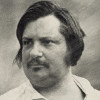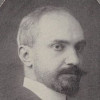“ The mythologist or poet, before science exists, is accordingly the man of truest and most adequate vision. His persuasion that he knows the heart and soul of things is no fancy reached by artificial inference or analogy but is a direct report of his own experience and honest contemplation. ”
George Santayana, The Life of Reason (1905). copy citation
| Author | George Santayana |
|---|---|
| Source | The Life of Reason |
| Topic | persuasion science |
| Date | 1905 |
| Language | English |
| Reference | |
| Note | |
| Weblink | http://www.gutenberg.org/files/15000/15000-h/15000-h.htm |
Context
“The sun is a better expression of all his ulterior effects when he is conceived to be an arrogant and all-seeing spirit than when he is stupidly felt to be merely hot; so that the attentive and devout observer, to whom those tertiary qualities are revealed, stands in the same relation to an ordinary sensualist, who can feel only the sun's material attributes, as the sensualist in turn stands in to one born blind, who cannot add the sun's brightness to its warmth except by faith in some happier man's reported intuition. The mythologist or poet, before science exists, is accordingly the man of truest and most adequate vision. His persuasion that he knows the heart and soul of things is no fancy reached by artificial inference or analogy but is a direct report of his own experience and honest contemplation. Tertiary qualities transposed.
More often, however, tertiary qualities are somewhat transposed in projection, as sound in being lodged in the bell is soon translated into sonority, made, that is, into its own potentiality.” source
More often, however, tertiary qualities are somewhat transposed in projection, as sound in being lodged in the bell is soon translated into sonority, made, that is, into its own potentiality.” source



